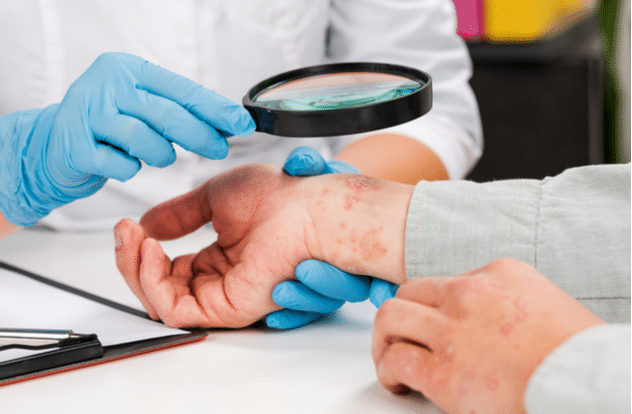How quickly does actinic keratosis become cancer?
Dr. Francisco Kerdel and associates at the Florida Academic Dermatology Center see many skin conditions that need attention. Patients often come to him and his team to get a proper diagnosis of skin issues that arise. This is true with actinic keratosis, a condition that can develop. Getting a true understanding of actinic keratosis is the best way to determine what can be done to address it--and keep it from becoming cancerous. Because of the likelihood of actinic keratosis becoming cancerous, it is vital that patients with it seek assistance from a dermatologist to address it as soon as possible.
What is actinic keratosis?
Actinic keratosis is a condition that results in the development of rough, scaly patches on the skin. The patches are usually pink or red, and they can vary in size from a few millimeters to several centimeters. Actinic keratosis is commonly found on sun-exposed areas of the body, such as the face, chest, and hands. Although actinic keratosis is not cancerous, it can lead to squamous cell carcinoma if left untreated.
How quickly does actinic keratosis become cancer?
Actinic keratosis is a common skin condition that can develop into cancer if left untreated. The condition occurs when the skin is exposed to too much ultraviolet light, causing the cells to become damaged. While actinic keratosis is not cancerous, it can develop into squamous cell carcinoma if it is not treated. The risk of developing cancer increases with the number of lesions present and the size of the lesion.
How can actinic keratosis be treated?
Treatment options for actinic keratosis include cryotherapy, topical creams, surgery, or laser therapy. Finding the one that is right for you requires patients to make an appointment with our team of professionals at Florida Academic Dermatology Center in Coral Gables, FL.
Schedule a visit with our team today
If you have actinic keratosis, it is important to see a doctor so that the condition can be monitored and treated if necessary. At the Florida Academic Dermatology Center, Dr. Francisco Kerdel and associates can assist. Call 305-324-2110 today to request an appointment and get a proper diagnosis and discuss treatment options.
